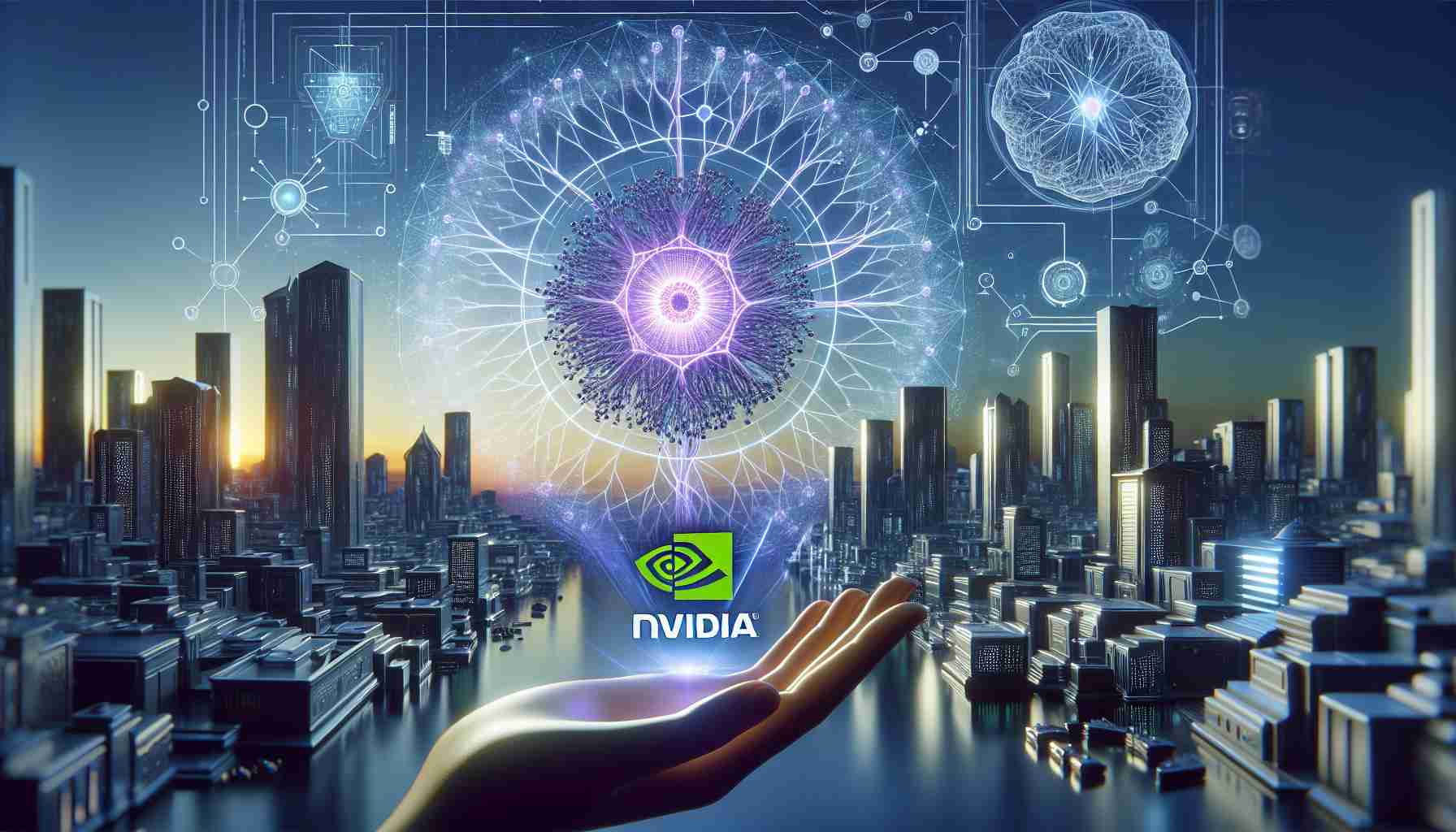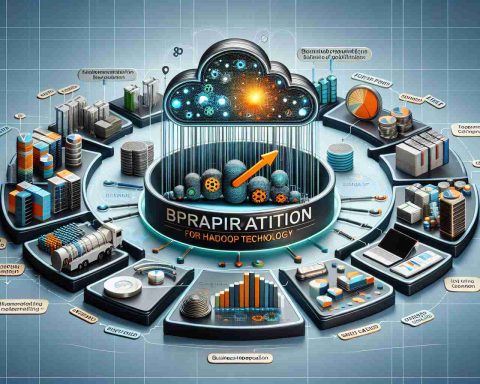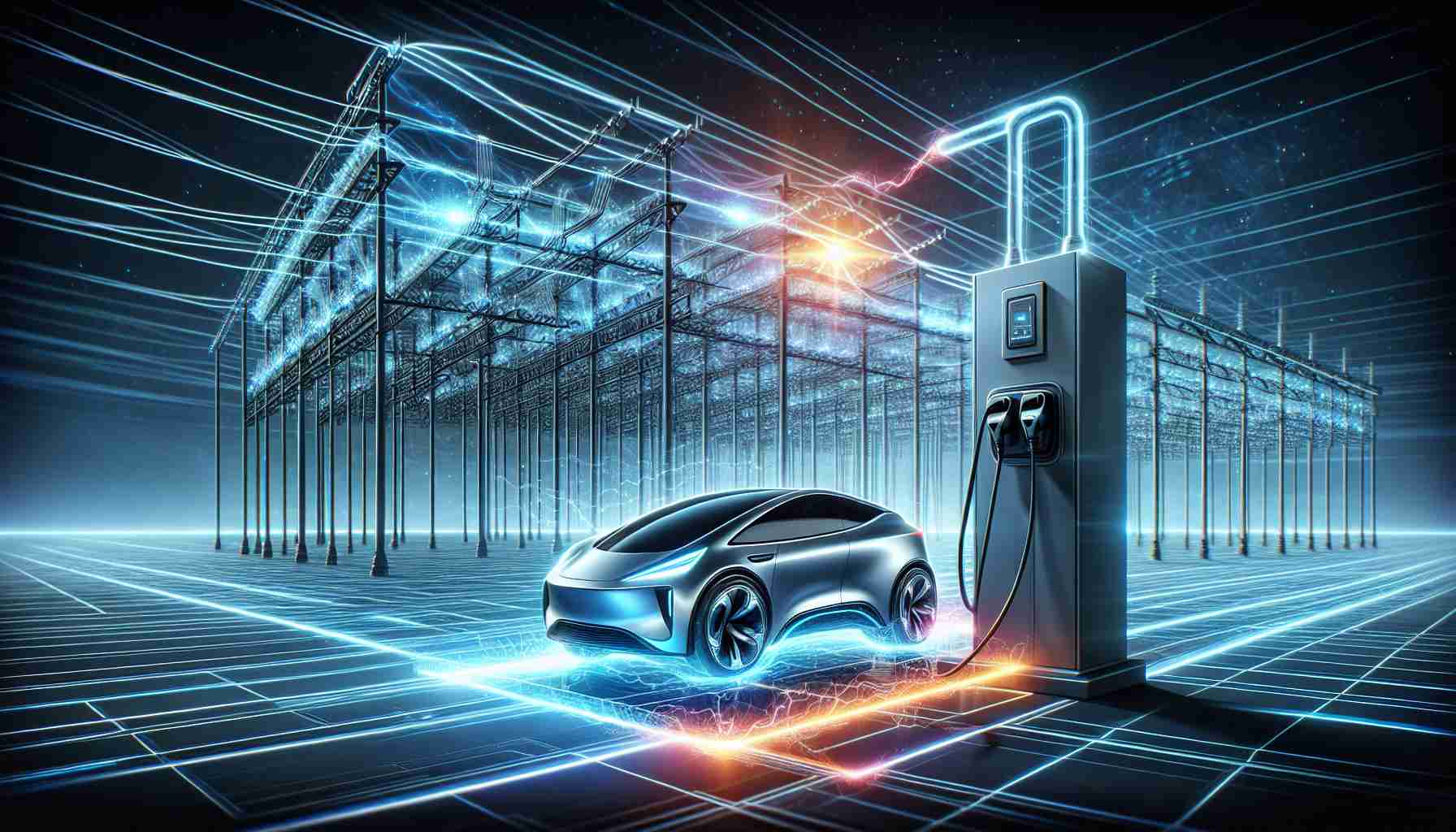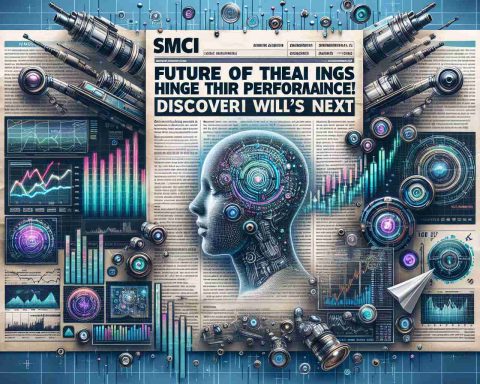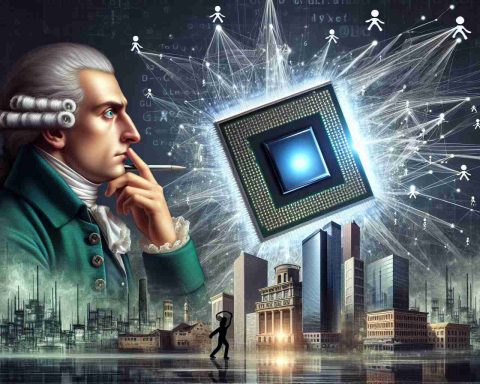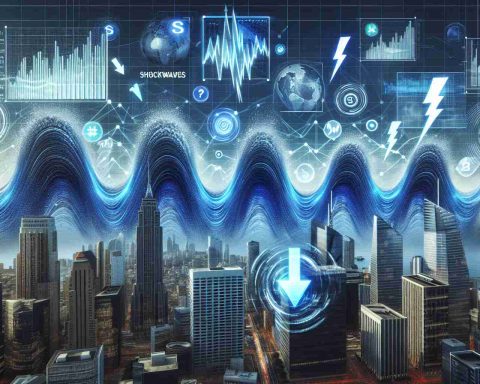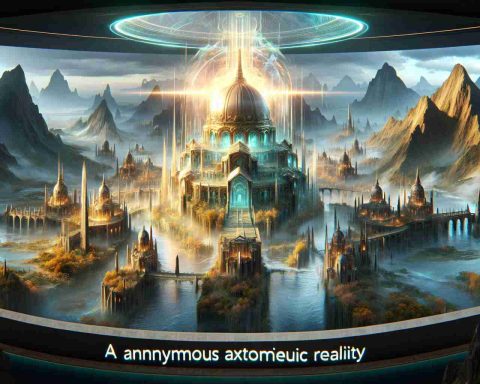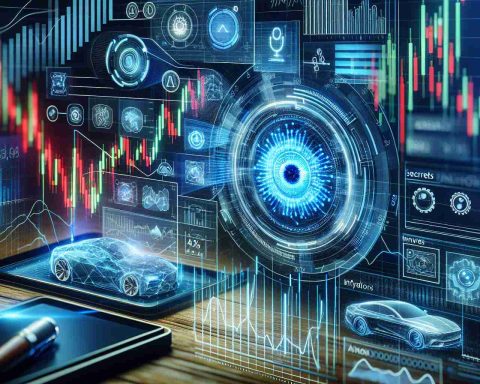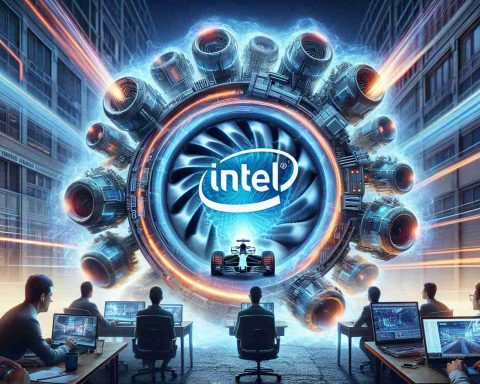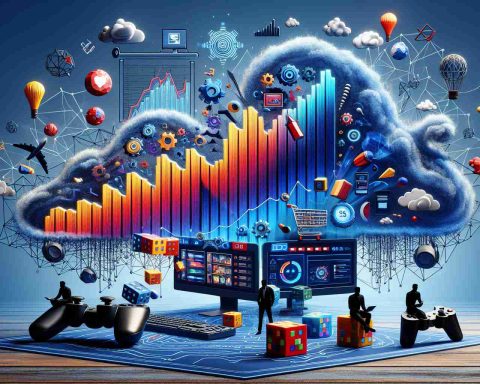NVIDIA’s latest innovations in artificial intelligence are not just reshaping gaming, they’re extending their transformative power to various sectors, heralding a future replete with smart technologies.
While the gaming industry rejoices over the potential of game worlds enhanced by AI, NVIDIA’s ambitions herald a wider wave of technological advancements. At the heart of this evolution lies the potential for profound changes in education and healthcare, leveraging AI for personalized experiences beyond entertainment.
In education, NVIDIA’s AI integration could herald a new era of adaptive learning environments. Imagine AI-driven platforms customizing educational experiences to individual learning speeds and styles, akin to game worlds adapting to a player’s skills. Yet, questions loom regarding the readiness of traditional educational systems to embrace these tools amidst financial and infrastructural challenges.
The healthcare sector stands on the brink of transformation as well. By processing vast amounts of medical data, NVIDIA-like algorithms could provide real-time diagnostic insights, enhancing patient care. However, this innovation stirs concerns about privacy and the human element in healthcare.
As society grapples with these advancements, the role of AI in social dynamics also raises ethical questions. How will AI’s emotional and behavioral influence alter societal interactions? Will it foster community growth or provoke resistance due to privacy concerns?
Economic impacts are equally significant. As AI takes on tasks traditionally done by humans, a shift in the job market demands new skills, emphasizing the need for workforce adaptation.
NVIDIA’s ventures offer a glimpse into a world where AI is intertwined with daily life, redefining possibilities well beyond gaming.
NVIDIA’s AI Innovations: Pioneering a Future Beyond Gaming
NVIDIA’s recent advancements in artificial intelligence (AI) are not limited to the realm of gaming; they signal a broader transformation across various sectors, notably in education and healthcare. These innovations present opportunities and challenges that could reshape humanity’s future, influencing our environment, social dynamics, economy, and global framework.
Environmental Impact
Increased AI integration, spearheaded by companies like NVIDIA, catalyzes heightened computational demand. As sectors like education and healthcare increasingly rely on AI-powered technologies, the energy consumption of data centers rises, thereby contributing to global carbon emissions. However, NVIDIA is committed to developing energy-efficient AI solutions, setting a precedent for creating environmentally sustainable technologies.
The broader adoption of AI could also enable more efficient resource management. For instance, in healthcare, AI-driven systems can optimize hospital operations, reduce waste, and streamline the supply chain of medical goods. In education, AI can enhance digital infrastructure, reducing the need for physical resources like paper and textbooks, thus lowering the educational sector’s ecological footprint.
Impact on Humanity
The integration of AI into education and healthcare presents a transformative opportunity for enhancing human experience. Personalized learning pathways crafted by AI can cater to diverse learning needs, closing knowledge gaps and providing equitable educational opportunities. Similarly, AI’s influence in healthcare could make real-time diagnostics and personalized medicine more accessible, potentially leading to improved health outcomes and increased life expectancy.
However, these advancements also raise significant ethical and societal questions. The reliance on AI in education may exacerbate existing disparities if access to technology is unequal. In healthcare, issues around data privacy and security must be addressed to maintain patient trust. These challenges implicate the need for policies that ensure technology serves humanity inclusively and ethically.
Economic Implications
The economic landscape will undergo significant changes as AI adoption grows. As AI-driven technologies take over roles traditionally performed by humans, the job market will pivot towards AI literacy and data management skills. This shift compels educational institutions to prioritize AI and technology-based curricula, preparing a future workforce that is adaptable and skilled in emerging technologies.
Industries will experience productivity boosts and cost efficiencies through AI, potentially creating new markets and economic models. NVIDIA’s innovations are likely to inspire investment into AI start-ups and research, driving economic growth and diversification.
Future Connections
The trajectory set by NVIDIA’s AI innovations is paving the way for integrated smart systems that could redefine how we interact with our world. By spearheading AI integration, NVIDIA demonstrates how technology can enrich human life when guided by ethical considerations and sustainable practices. It is crucial, however, that societies worldwide prepare for these changes, ensuring that humanity’s progress is inclusive, environmentally conscious, and economically beneficial.
This transformative potential must be harnessed responsibly, creating frameworks that support lifelong learning, ethical AI deployment, and sustainable development. By doing so, NVIDIA’s innovations in AI are not just a harbinger of technological advancement; they are a stepping stone towards a more sustainable, equitable, and interconnected global society.
Unlocking the Future: How NVIDIA’s AI Innovations Go Beyond Gaming
NVIDIA’s advanced artificial intelligence (AI) developments are not only transforming the gaming world but also setting the stage for substantial advancements across various sectors, including education and healthcare. As industries increasingly integrate AI technologies, new possibilities and challenges arise, prompting deeper considerations into how such innovations will shape our future.
Innovations and Trends
NVIDIA’s efforts are bringing to light potential advancements in diverse fields, spearheading a shift toward smarter, more adaptive systems. In education, the application of AI promises personalized learning experiences that adjust to individual needs, akin to the dynamic nature of interactive gaming environments. Such adaptive systems could revolutionize traditional educational paradigms but face challenges in integration due to financial and infrastructural limitations.
Similarly, the healthcare industry anticipates a transformative impact. AI technologies capable of analyzing extensive medical data sets offer the potential for real-time diagnostics and enhanced patient care. As promising as these innovations are, they also raise issues surrounding data privacy and the preservation of the human touch in medical practice.
Economic Implications
The economic landscape is poised for change as AI solutions begin to take on roles traditionally performed by human workers. This shift necessitates a reevaluation of workforce skills, calling for educational systems to adapt and prepare individuals for the jobs of the future. The integration of AI into everyday processes could catalyze the development of new roles while rendering certain existing positions obsolete.
Ethical and Social Considerations
The integration of AI extends beyond technical capabilities, raising critical ethical questions about its role in societal interactions. The influence of AI on emotional and behavioral patterns needs careful examination to ensure it fosters positive community dynamics rather than provoking resistance due to concerns about surveillance and privacy.
Predictions and Future Outlook
With NVIDIA’s AI initiatives leading the charge, the future points towards a seamless blending of technology into daily life, offering enhanced personalization and efficiency. As AI evolves, its potential applications across various sectors continue to expand, suggesting a future replete with smart technologies that significantly redefine our interactions and capabilities.
For more information on NVIDIA’s technological advancements, visit NVIDIA.

